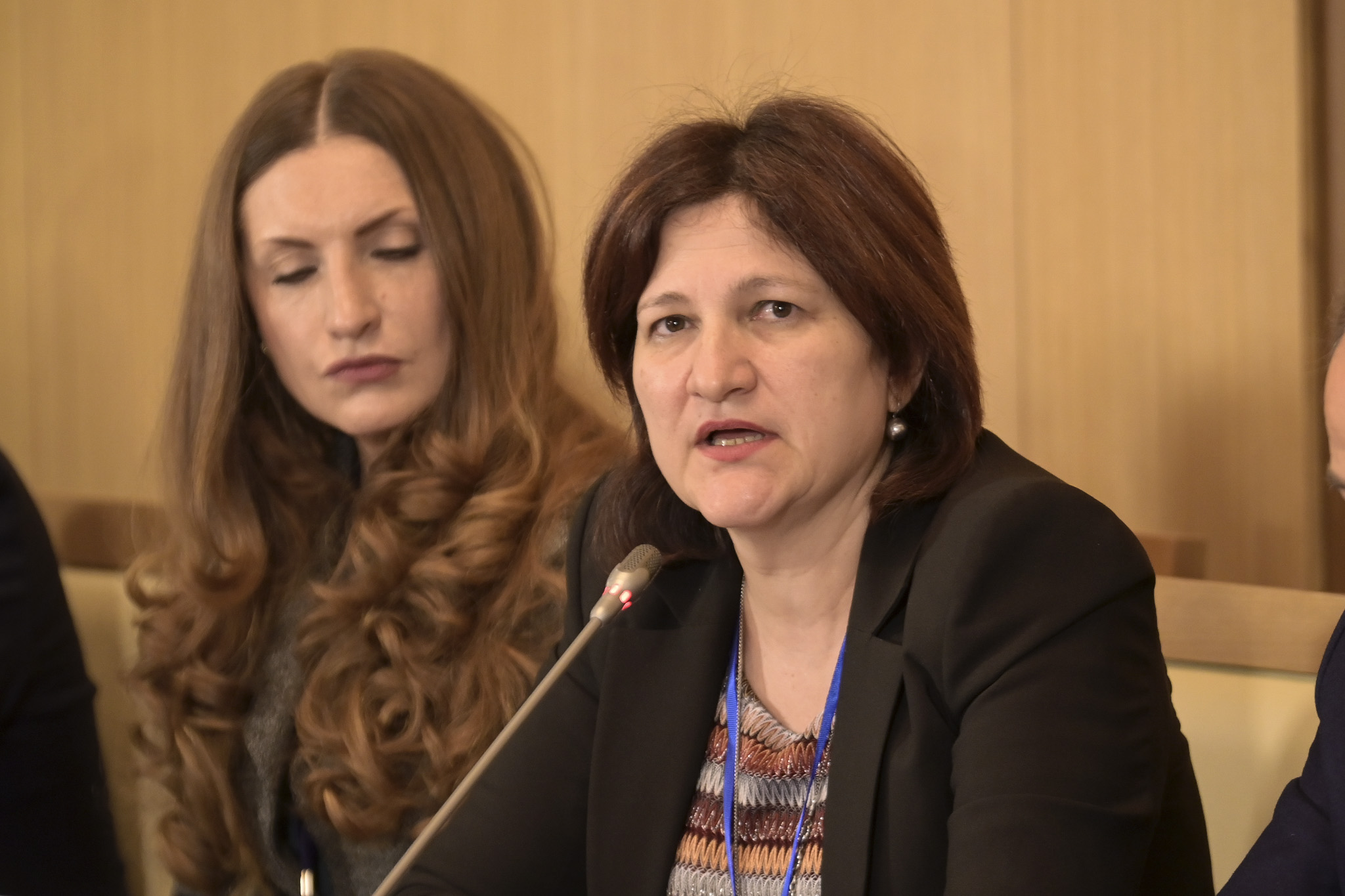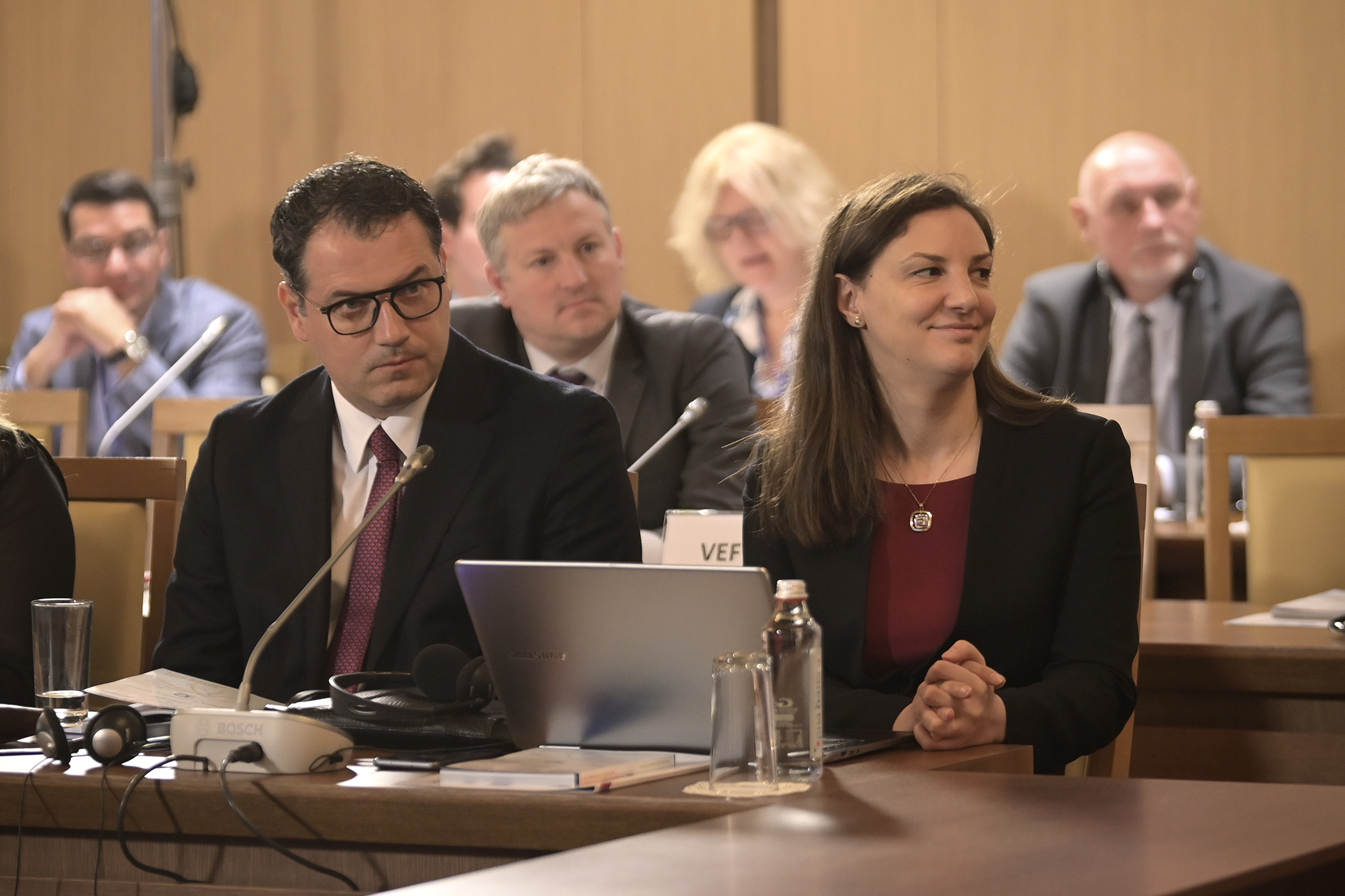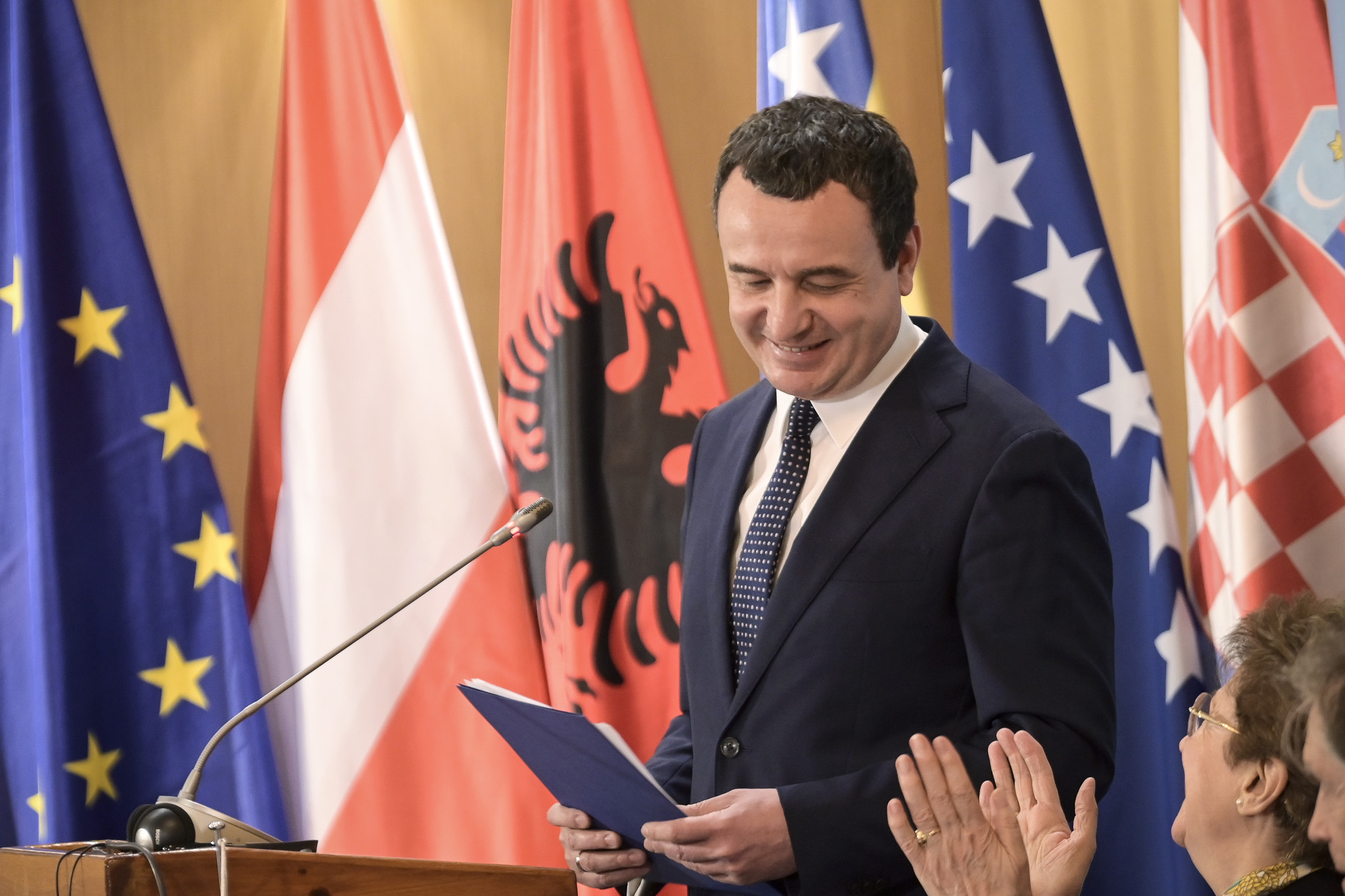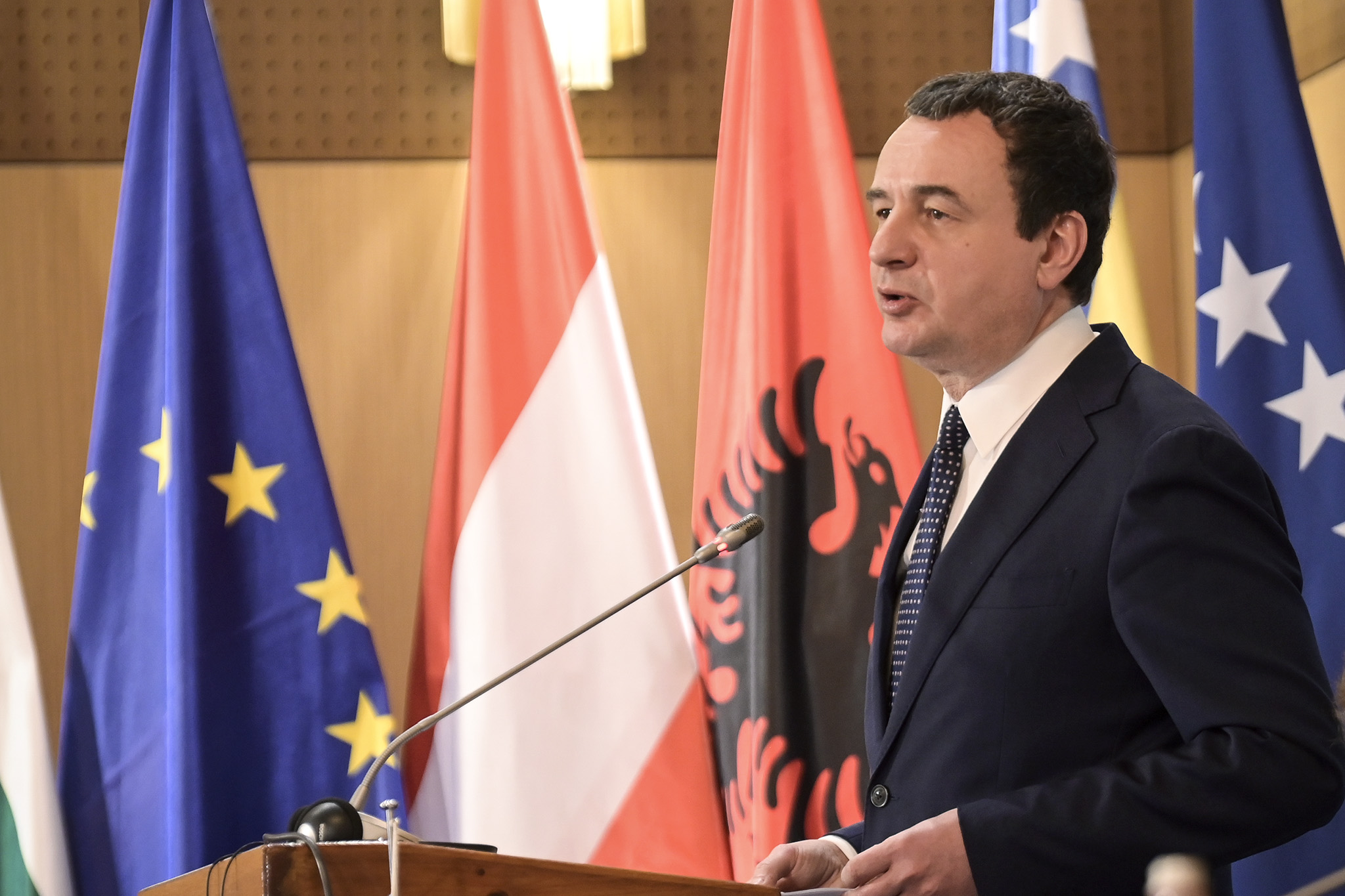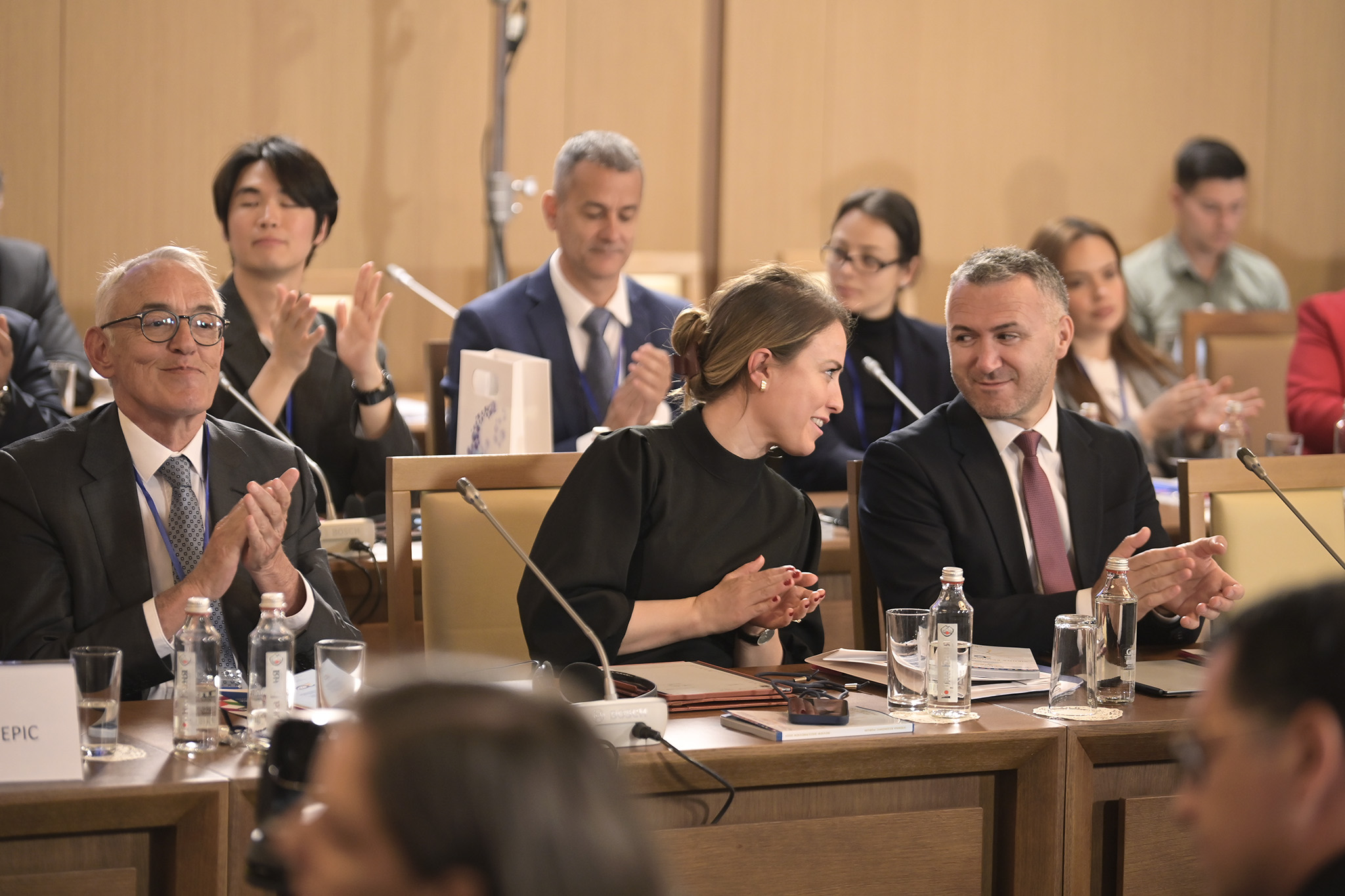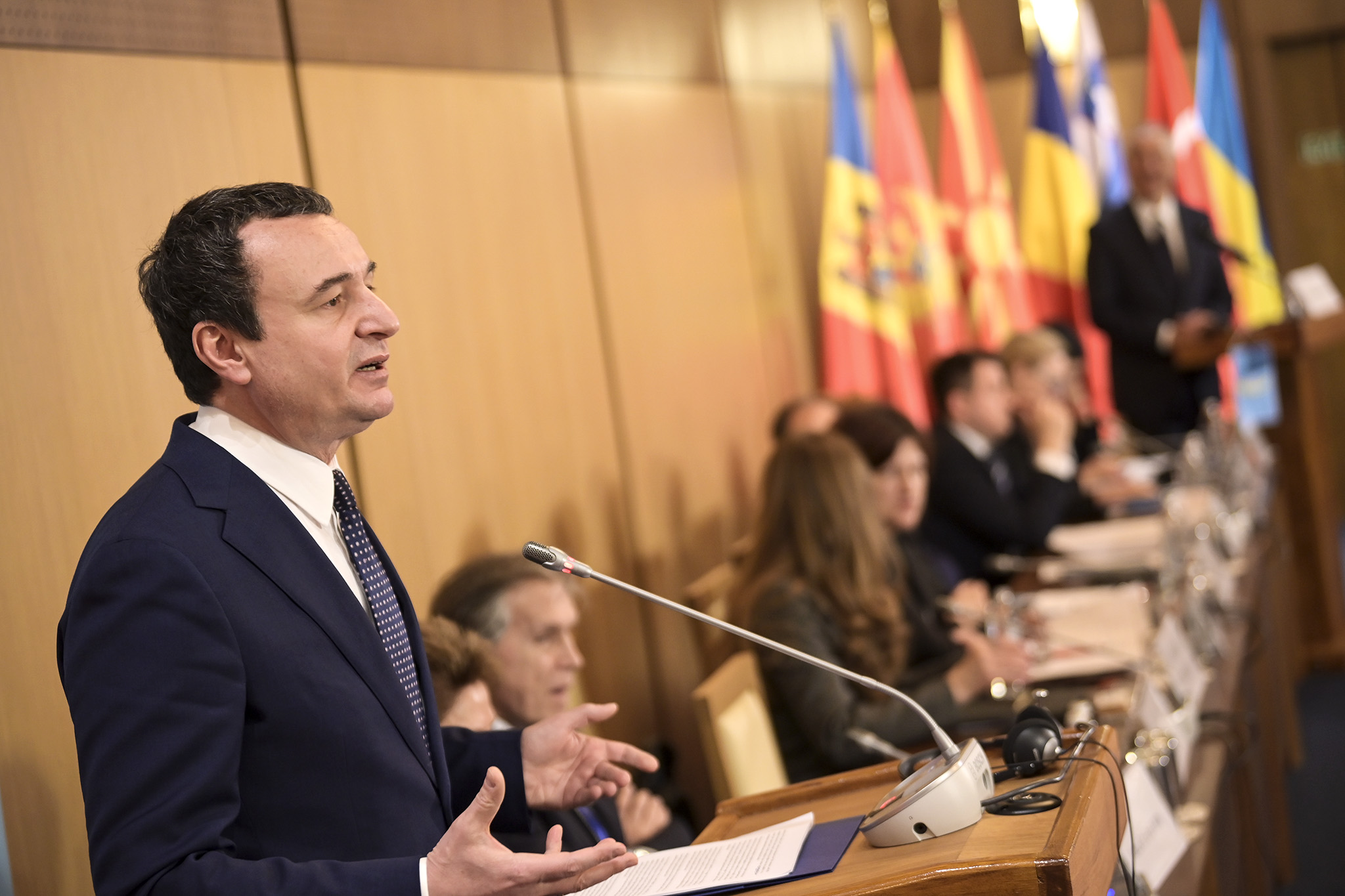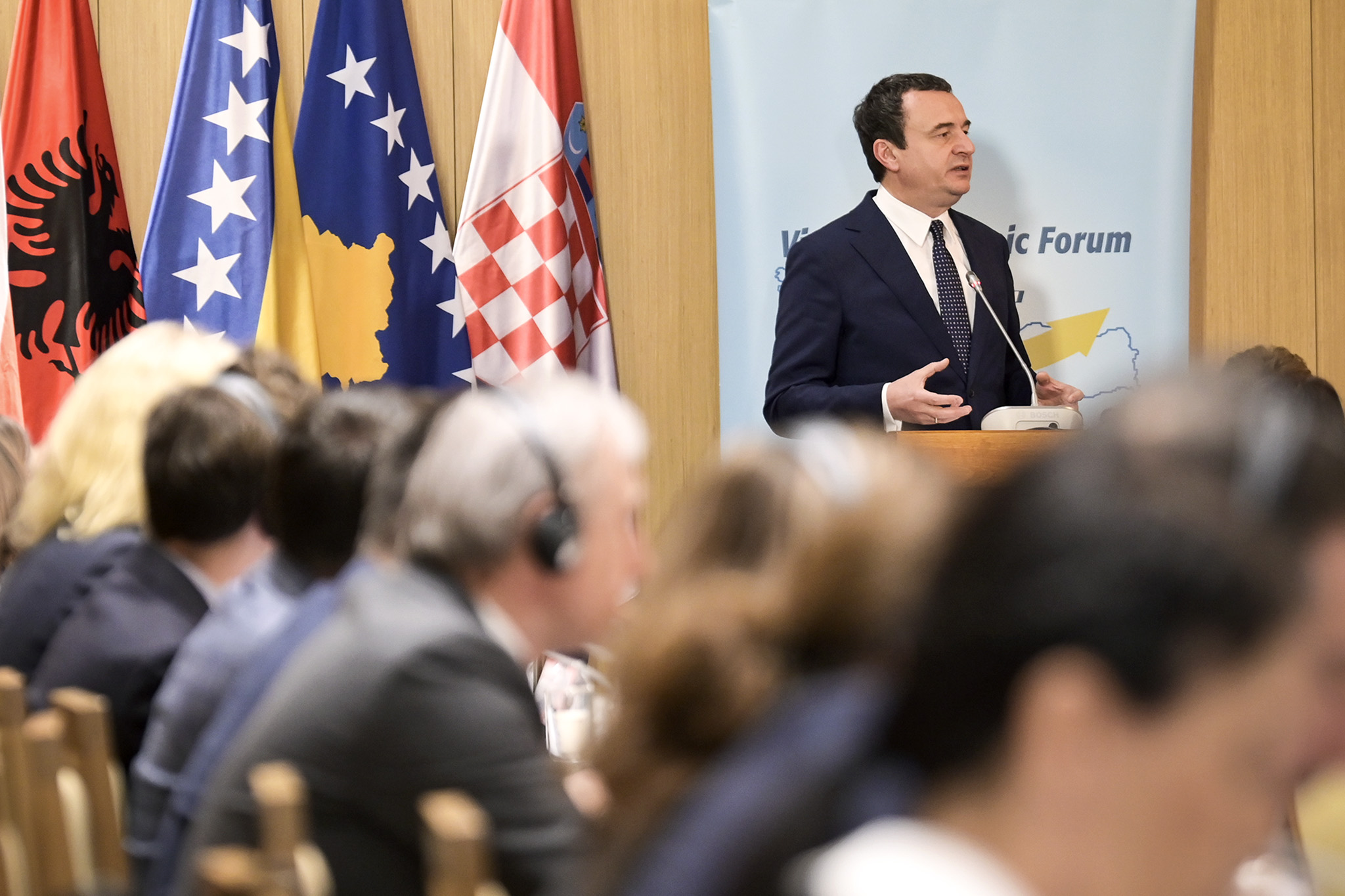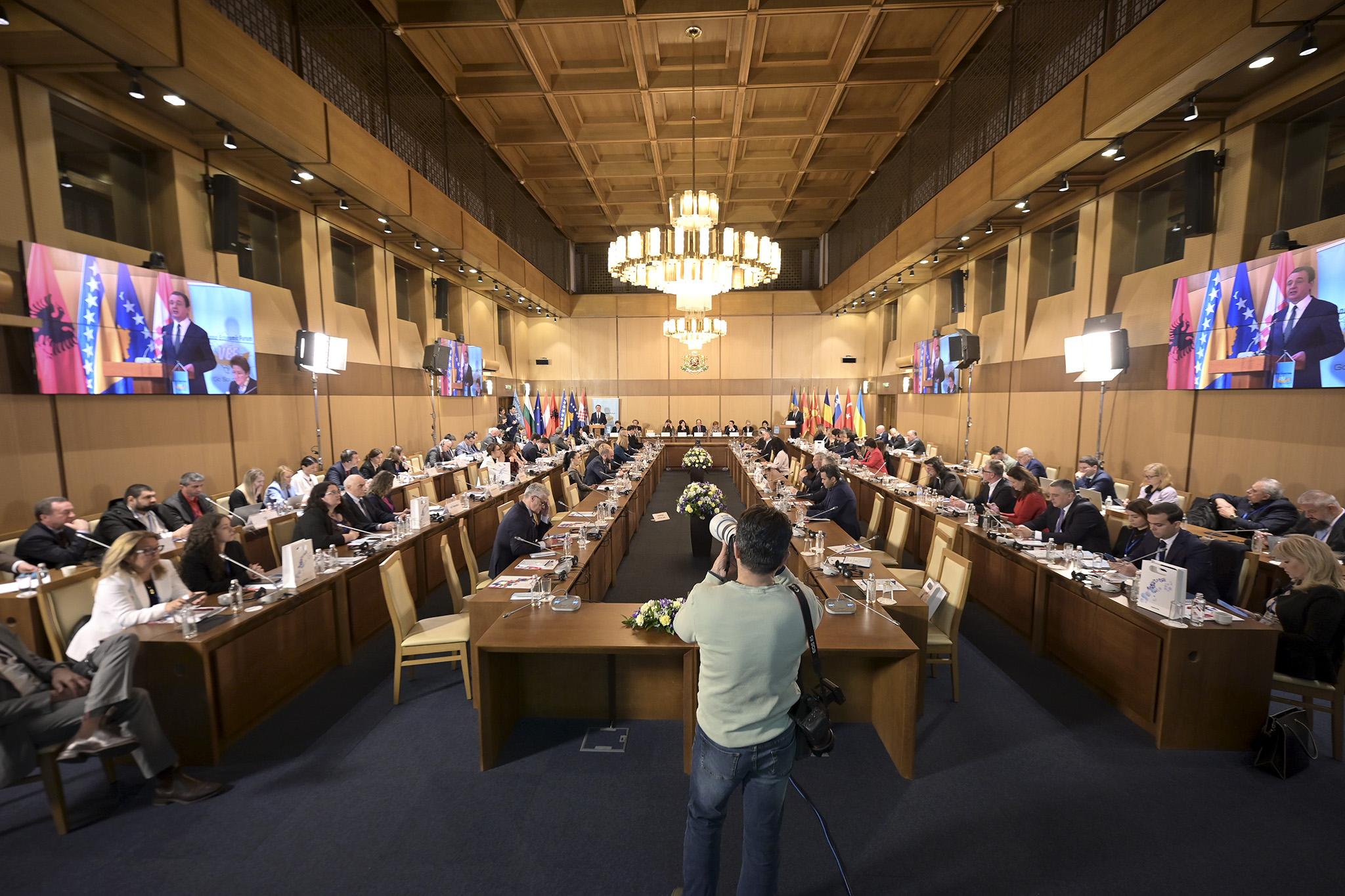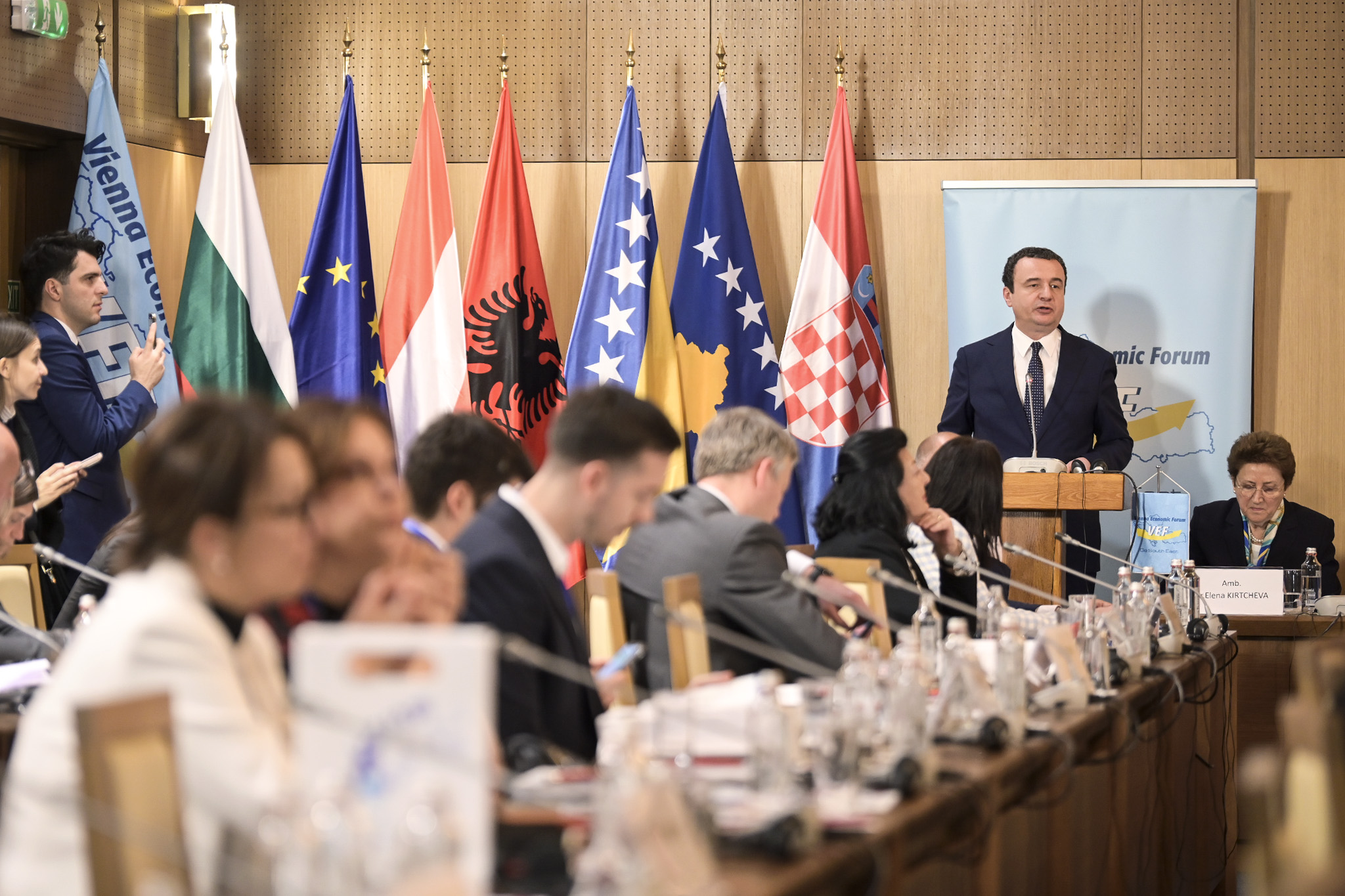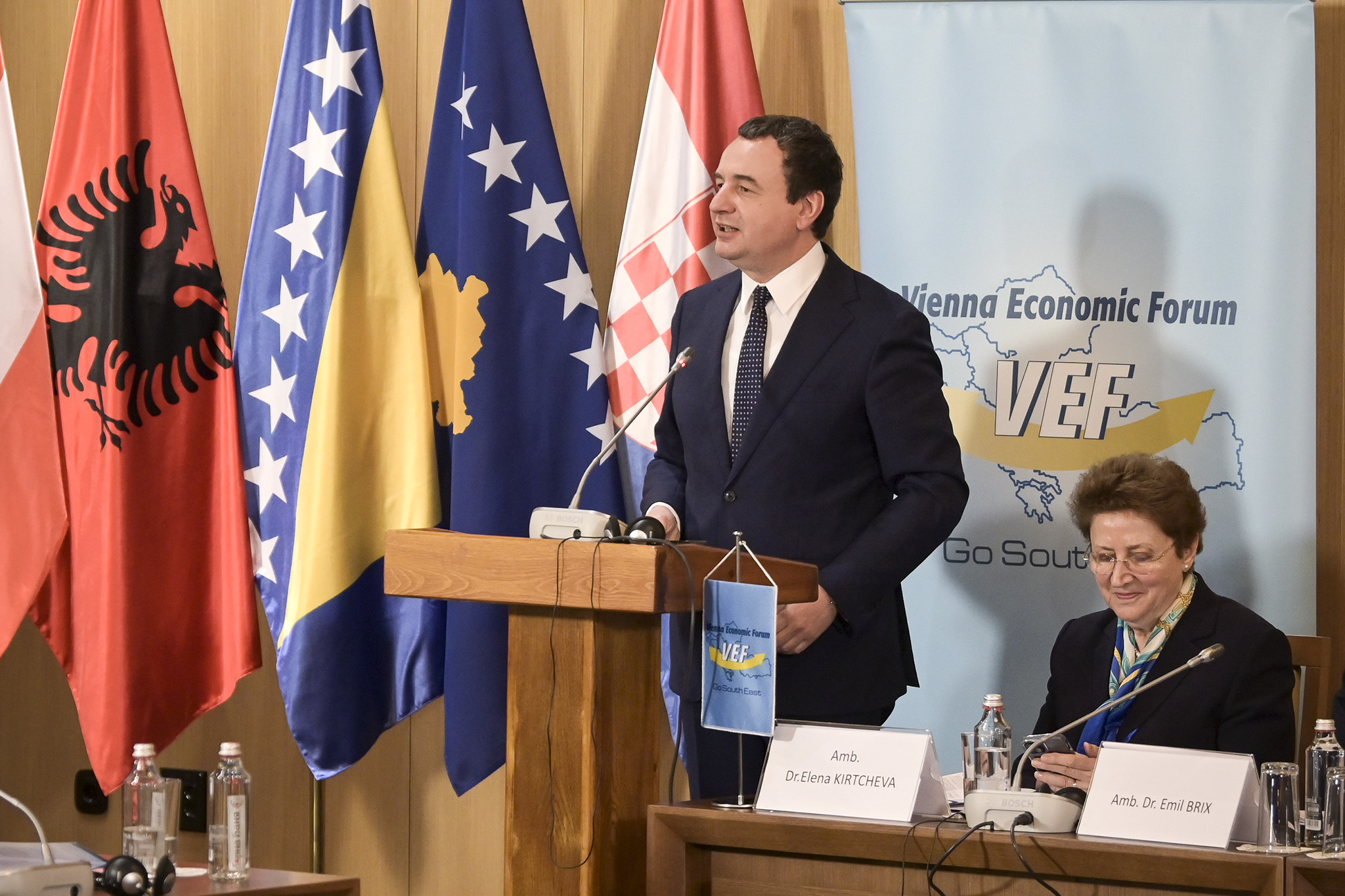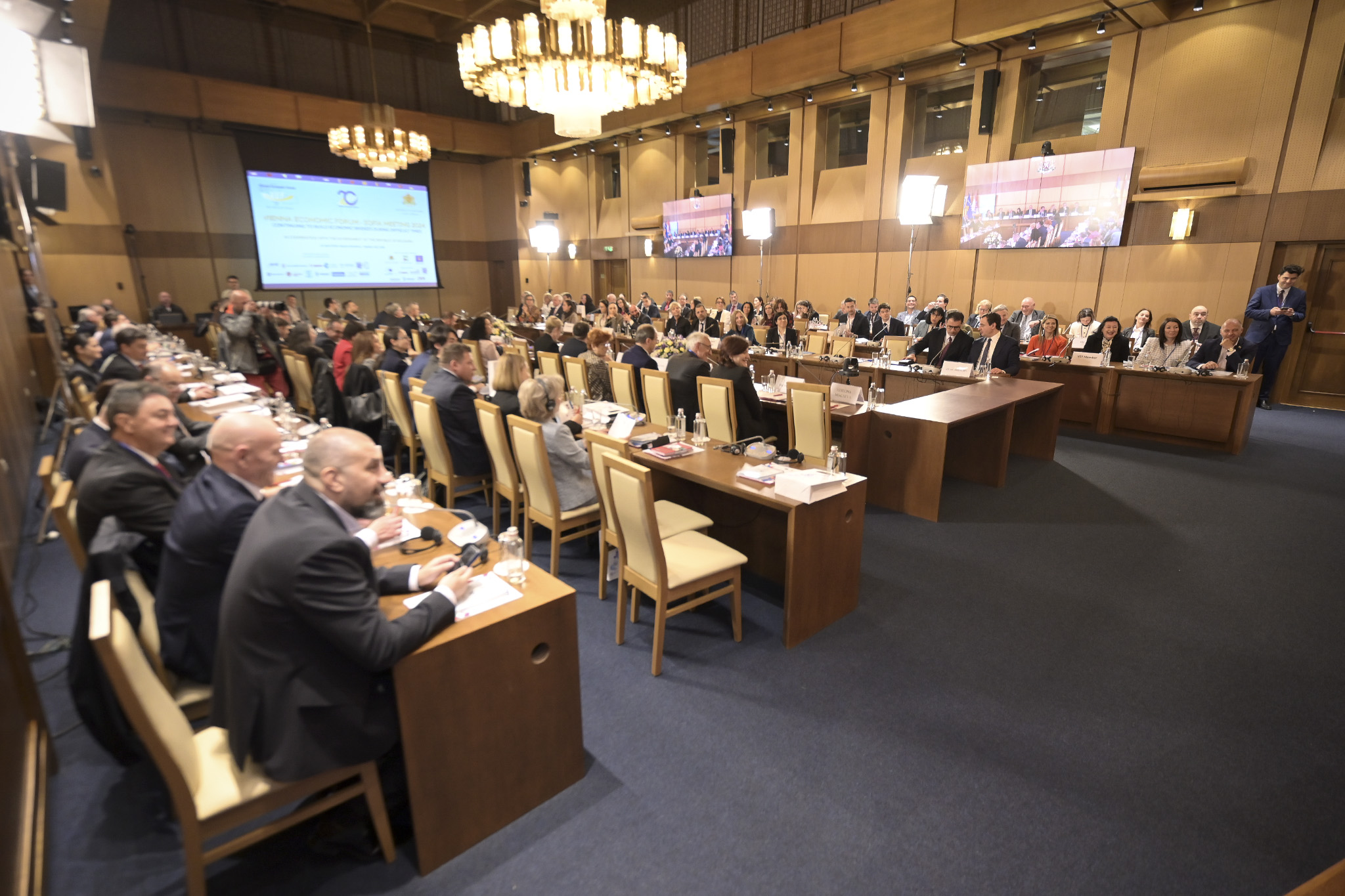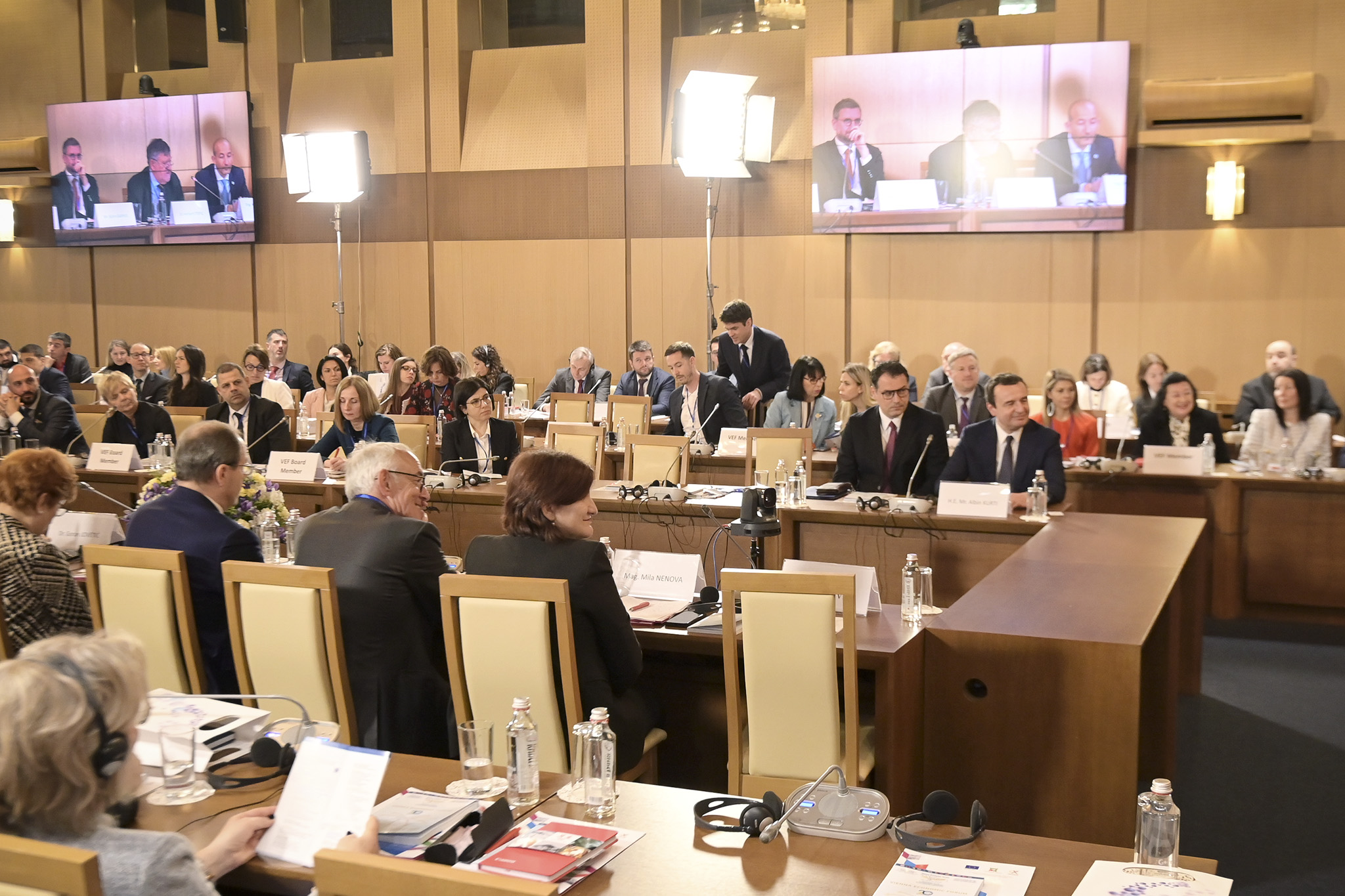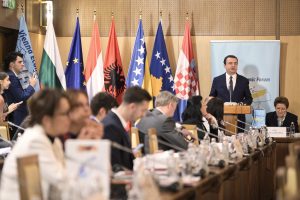Sofia, 22 April, 2024
Under the motto “Continuing to build bridges in difficult times”, the Vienna Economic Forum is holding the next conference in Sofia, Bulgaria, where the Prime Minister of the Republic of Kosovo, Albin Kurti, was also a participant in the second session of this organization, entitled “Questions for visionaries: The role of innovation, technology and education in regional economic cooperation”.
In his address, he recalled Bulgaria’s contribution to the discovery of the genocidal plans of Milosevic’s Serbia, but also appreciated the bilateral relations between our countries, which turn 15 this year. In this light, he thanked Bulgaria for the recent support given to our membership in the Council of Europe, which proves our common and democratic values and principles.
As he mentioned the common challenges we face as a result of the pandemic we experienced not long ago and the effects of Russian aggression in Ukraine and the situation in the Middle East, he also underlined that today, on Earth Day, climate change need to be addressed urgently, for the benefit of future generations.
The Prime Minister emphasized the importance of cooperation, solidarity and communication between the countries of the region. Speaking about technological developments, he mentioned the positive aspects that are put at the service of strengthening the bridges of cooperation between us, but also its deliberate misuse by autocrats who see technology as a tool for damaging democracy and security.
Following his speech, he emphasized Kosovo’s vision for this field, the development that the information technology sector is experiencing, the steps being taken by the Government and the opportunities that our country offers.
“I am convinced that we can unlock the region’s potential. We can strengthen our democracy and foster an economic structure that is ready for the future. As a government, we bear the responsibility to expand and increase opportunities for our citizens, not to diminish them. We understand the formula for success: it relies on integrated economies, common rules and standards and the four freedoms that have established the European Union as the largest economic area in the world,” said Prime Minister Kurti.
Prime Minister Kurti’s complete speech in English:
Dear Ambassador Kirtcheva,
Dear Ministers and deputy ministers,
Dear business representatives,
Ladies and gentlemen,
It is a pleasure to be here with you today in Sofia. It is a particular pleasure since this is the country of origin of the esteemed chair of the Vienna Economic Forum, Mrs. Elena Kirtcheva and it is my very first time in this impressive country as Prime Minister of the Republic of Kosova.
I cannot be here today in the beautiful city of Sofia without speaking of our gratitude towards Bulgaria, its government and people. Bulgaria recognized the independence of Kosova early on. This year we are going to celebrate 15 years since the establishment of our bilateral diplomatic relations. But earlier on than this, 25 years ago, it was the Bulgarian authorities who first discovered the military plan of the genocidal regime of Milosevic, namely the operation “Horse shoe”, which in spring 1999 was expelling Albanians from our country. It took a liberation struggle and NATO intervention to save the people. We rebuilt our homes and today we have become a prosperous and democratic country looking towards western values and cooperation. Now 25 years later as free people we can hold conferences and our governments can meet and exchange on issues of economy, education, energy, culture and tourism.
On this occasion I would also like to thank the Bulgarian delegation to the Council of Europe for their positive role for Kosova’s accession in this prestigious organization. My country and Bulgaria share the same conviction of democracy, rule of law, human rights and prosperity while being committed to the standards of the European Union and the alliance with NATO.
Ladies and gentlemen,
Today, I have been invited to discuss the role of innovation, technology, and education in regional cooperation under the motto of this VEF Forum “Continuing to build bridges during difficult times”.
Indeed, times could be easier thus I am convinced we need to understand the importance cooperation – those bridges – have for our region. My impulse statement here should serve as a call for more solidarity among us as a region. We have to communicate and cooperate more. We can do more; we can do better.
As a government we are aware of the challenges posed by the two big global crises in the last four years – namely the Covid-19 pandemic and the Russian war of aggression against Ukraine. Now unfortunately wars in the Middle East have reoccurred while Russia is not backing down.
But, and this I find particularly important to remember today, the 22nd of April, we celebrate Earth day, the day of our planet, we have an ongoing crisis we need to target as well: Climate change with ever more occurrence of floods, droughts and wild fires – as we can see across the world, but especially in our region.
Those crises not only have thrust the global economy into recession but instilled fear about the future among our citizens.
At the same time, we are seeing a disruption in the technology sector with the most recent developments in Artificial Intelligence. With the applications of AI, we are starting to witness core transformations in many industries. Opening new pathways to growth. But which again the perception of many citizens, also harbour dangers. And yes, we need to worry when democracy is being threatened as autocrats are using social media and technology as a strategic weapon to destroy it. Cyber-attacks and hybrid wars have become an imminent security threat to most of our governments. We have to fully embrace technological progress but at the same time make sure that that does not go at the expense of our cherished values.
But this is when our resilience and perseverance come to the forefront and we continue and need to continue building bridges throughout our region and within our societies. So if there are certain difficulties we should not start to think that we might have to change the course. Continuing to build economic bridges means that in spite of hardship, we shall continue. One thing that we should not question is continuing. Bridges have no alternatives. We must continue to build these bridges in spite of all sorts of hardships and challenges that we face nowadays. Otherwise we risk losing people to extreme positions. If we do not build bridges than we weaken the middle class and we risk losing people to extreme positions, risking our social cohesion due to the aggravation of the perceived and prevailing social inequality. So coupled with climate change and security threats without development, which shall be inclusive we have to address social inequalities. This is the way how we do not lose people to extreme positions. And now in these disruptive times proper education seems to be key. What kind of education in the 21st century, for young generations, is crucial as a vision for us as representatives, political leaders and businesspeople.
And our vision as Kosova is pretty clear. We aim to be a beacon of progress and a hub of technological excellence in Southeast Europe. We are nurturing a young generation who is not only tech-savvy but also deeply aware of their role in the global marketplace and regional community. With visa liberalization, they are exploring Western Europe, making connections and creating better understanding of Europe and the region. Two communities are at the forefront, businesspeople and students. Academia and companies. These are the two sectors which have benefited most from visa liberalization and from their communication and cooperation with European Union.
I would like to use this opportunity to mention Kosova’s great developments in the technological and educational sector: The Innovation and Training Park in Prizren, a collaboration between the Kosova and German governments, spans 39 hectares and houses 52 buildings, 45 companies, and a university. Meanwhile, the newly inaugurated Tech Park in Prishtina and the Innovation Center Kosovo collectively represent a robust commitment to nurturing over 500 startups and developing 450 innovative products with substantial support from European partners.
In this sense we aim for our ICT sector to become the economic flagship of Kosova – especially now when supply chain disruptions and hybrid conflicts are becoming more prevalent, investing in the IT skills of our people is crucial. We are building the necessary infrastructure therefore, examples being the 150 electronic services on the e-Kosova platform, adoption of laws on electronic identification and cybersecurity, and substantial investments in the strategy for e-Government and cybersecurity.
Also our government excelled in connecting “White Areas” to Broadband Internet, making Kosova one of the first countries in Europe to connect every village with high-speed broadband Internet. This initiative is just a glimpse of how our country is using innovation and technology to enhance our educational frameworks and economic infrastructure, fostering a resilient and dynamic economy ready to contribute to and benefit from regional cooperation.
Our ICT sector is characterized by a remarkable 113% growth in the export of services in 2022 alone, and maintained strong growth in last year, 2023. The spring of 2024 has found us with net investments in this field, the inauguration of new IT companies and the request of more and more youngsters to enroll in STEM studies. We are especially proud that Kosova holds the European record when it comes to woman in STEM studies: While the European average stands at 17% we have achieved 50 of all STEM students being female. As a prime minister, I can say that there is no investment which pay back more in return than investing in women students in STEM studies. Nowhere else have we had a higher return than investments in women students. Also we will introduce coding from first grade this year. Perhaps we can say that in the 20th century Esperanto failed as a universal language, but I think coding could succeed in the 21th century. So we have to prepare in rewriting our curricula at the cross of which is digitalization as part of digital transformation and especially introducing coding from the first grade of elementary schools.
Our Tech sector now encompasses over 1500 companies, with 85% engaged in international service export, underscoring our global reach and capability. For a country with currently around 1.8 million inhabitants those numbers are impressive and encourage our government to keep investing in this sector.
At the same time, we must acknowledge the migration challenges our region has faced since the fall of the Iron Curtain and the violent dissolution of Yugoslavia. Our mission as governments and I guess I also speak for the representatives of the companies operating in our region, is to keep those young, smart people at home – equip them with the skills of the next decades, offering them the education needed to thrive right here in their home region. This is not just a vision but a tangible reality being shaped by every young entrepreneur, educator, and innovator in Kosova today.
In the 20th century, in my country, the most famous German word was Gastarbeiter. In 21st century we want to make Ausbildung the most famous German word. How to link professional education with labour market and to bridge the skills gap. We have already started last year and it is going well because to have a thriving economic private sector we need to provide so to speak non-academic professionals. This is going to replace migration with employment.
I am convinced that we can unlock the potential of the region. We can strengthen our democracy and foster an economic structure which is ready for the future. As governments, we bear the responsibility to expand and enhance opportunities for our citizens, not to diminish them. We understand the formula for success: it rests on integrated economies, common rules, common standards, and the four freedoms that have established the European Union as the world’s largest economic area.
Although Kosova and the Western Balkans are not yet members of the European Union, we have mechanisms in place that help remove barriers between our countries, which in turn can accelerate our accession to the European Union.
One such initiative is the Berlin Process, of which Bulgaria is also a participant. In this framework, we are making strides in implementing the four freedoms. We have begun with agreements on freedom of movement using ID cards, mutual recognition of higher education diplomas, and mutual recognition of qualifications in certain professions. These agreements allow professionals, students and academics and entrepreneurs to move freely, fostering greater economic growth but also increasing people to people connections. As we continue to implement existing agreements and sign new ones, the benefits and opportunities for our region will expand and grow.
Since last November, the European Union has introduced a new initiative to boost growth and accelerate reforms. Known as the “EU Growth Plan for the Western Balkans”, this plan directly addresses the increasing security threats from malign actors in our region and responds to our citizens’ desires for a better life and a clear, merit-based path to progress. Kosova is an active participant in the Berlin Process and fully supports the EU’s Growth Plan. These efforts are complementary and guide us toward the same goal—full membership in the European Union, the most important political project and historical process of peace and prosperity since the Second World War.
Once again, thank you

